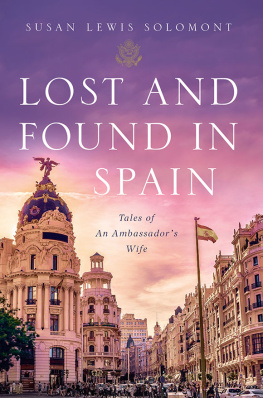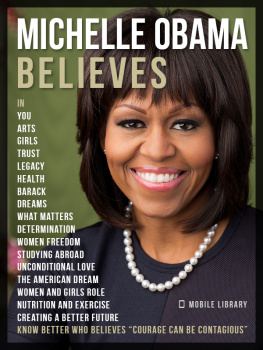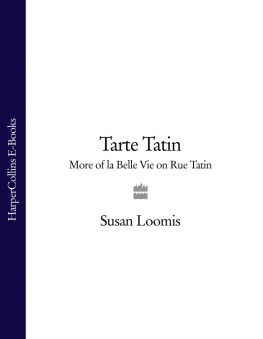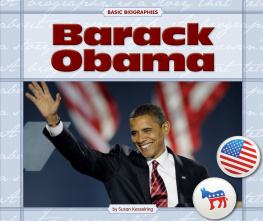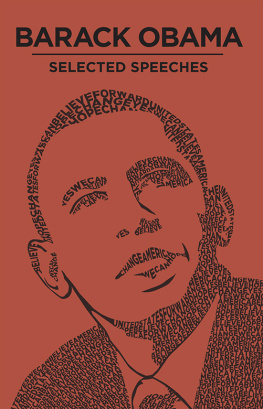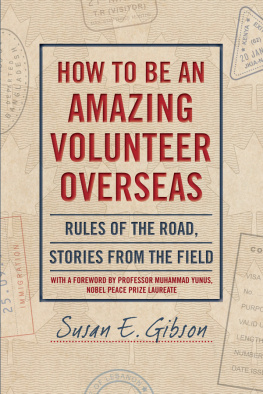This book is memoir. It reflects the authors present recollections of experiences over time. Some names and characteristics have been changed, some events have been compressed, and some dialogue has been recreated.
All rights reserved.
No part of this book may be reproduced, stored in a retrieval system, or transmitted by any means, electronic, mechanical, photocopying, recording, or otherwise, without express written permission from the copyright holder. Requests for permission should be directed to .
For ordering information or special discounts for bulk purchases, please contact Disruption Books at .
To Stella Blu, eres una perrita maravillosa.
INTRODUCTION
FROM BOSTON TO THE LAND OF OZ
T HE DAY THE WHITE HOUSE called, it was my husband who answered the phone. After a period of silence and the occasional Yes, No, and Of course, I heard Alan exclaim: Spain? Of course, Spain! Wed love to serve in Spain. I love Spain! I steadied myself on the wall, unable to believe this sudden change in our destiny.
It was January 2009, three months after the election of President Barack Obama. Alan had worked hard on Obamas campaign, sharing his message of hope and change to new friends and potential donors throughout the country. Recognizing my husbands efforts during the campaign, the new administrations transition team asked whether Alan would be willing to serve as an ambassador. He said yes, but neither of us counted on him actually receiving an overseas appointment. Now he had, and in twelve months time, we would be trading our home in Weston, Massachusetts, for the US embassy in Spain. We were going to Madrid.
But not so fast
Amid the swell of emotions in the months that followed, I was unable to think very clearly about the impact a three-year foreign service assignment might have on me or on my career. I had worked for over thirty years in the nonprofit world, fundraising for organizations I admired (such as PBS), and helping corporations and foundations make strategic philanthropic decisions. What about my senior position at The Philanthropic Initiative (TPI), a global consulting firm? What about my involvement on the boards of such organizations as the Citi Performing Arts Center (now the Boch Center), the New England Aquarium, and The Commonwealth Institute? I would soon be putting those responsibilities on hold.
Yet I vaguely supposed living in Europe would be stimulating for me. Professionally, Id gain exposure to European philanthropy and perhaps make new business contacts. I imagined my job would serve as something of an anchor for the rest of my life in Spaina defining part of me, as it always has been. Even when my two daughters were little, I would leave for work each day while other moms went off to play tennis. Staying at home while my husband worked was the furthest thing from my mind.
Imagine my disbelief, then, when I heard that I wouldnt be working in Spain.
In July 2009, Alan and I ventured to Washington, DC, to participate in ambassador schoolthe Department of States mandatory Ambassadorial Seminar, also lovingly referred to as charm school. Rest assured, as interesting as this experience was, there was nothing charming about it.
First of all, it was long and grueling. Twelve ambassador designates and their spouses met from eight thirty in the morning to six in the evening, Monday through Friday, for two weeks. Government officials filtered through the room, briefing us about their agencies and the roles we would play abroad. As they introduced us to what increasingly felt like alphabet soupCIA, DOS, RSO, FBII threw myself into the curriculum, taking copious notes and trying to keep all the agencies and their various functions straight. It was like being in college again, subjected to a rigorous immersion in the workings of the government, both in our nations capital and in our embassies, consulates, and diplomatic missions around the world.
We learned about how to move to our countries, the structure of an embassy, security protocols, and other logistics. We brushed up on the basics of Spains government and economy, understanding that Spain is a parliamentary democracy and Europes fifth most powerful and populous country. We learned that Spain is divided into seventeen autonomous communities analogous to Americas states. And we learned that Spains economythe worlds ninth-largest thenwas heading toward a terrible recession caused by overdevelopment in the real estate sector and overextension by the banking industry.
The seminars opening days were fascinating and educational, but also nerve-wracking. The idea of moving abroad and representing the United States in Spain was becoming real. And the experience became even more realalarmingly realwhen the words conflict of interest popped up in one conversation with a government official, as in, Jobs for spouses of ambassadors are often deemed to represent a conflict of interest .
Thats right: according to the Department of State, the risk exists that ambassadors might use their official position to benefit a spouses employer or client. So the government not only didnt want me working, but also requested that I give up my seats on the boards and foundations I served and from which I derived great satisfaction.
At least I would be exchanging my professional commitments for meaningful work at the embassy, right? Actually, that wasnt necessarily the case, either. My first inkling of the diminutive role of ambassadors spouse came when our instructors circulated to each participant a loose-leaf binder with important information and resources, including the rsum and curriculum vitae of every ambassador present. I was immediately struck by the realization that the binders contents excluded any pertinent information about any of the ambassadors spouses. A bit vexed, I began to wonder what Secretary of State Hillary Clintonthe most powerful woman in the United States at that time, and certainly the most famous political spousewould say. Surely she wouldnt approve of this glaring omission!
As I learned more about what was expected of an ambassadors spouse, I came to hope that perhaps I could still work by doing something important for our nations embassy in Madrid. I met a previous ambassadors wife who had been a journalist for many leading newspapers and institutions. While residing in her host country, she would organize intimate lunches with journalists and have conversations focused on important issues of the day. Her embassy loved those gatherings and was thrilled that she organized and ran them. Her skills and expertise were highly valued and deeply respected. Upon hearing this, I imagined organizing meaningful events that would help the United States and our embassy in Spain accomplish important objectives. It wouldnt be a job in the conventional sense, but I could live with it. Ultimately, I had to find meaning and value in whatever I ended up doing.

